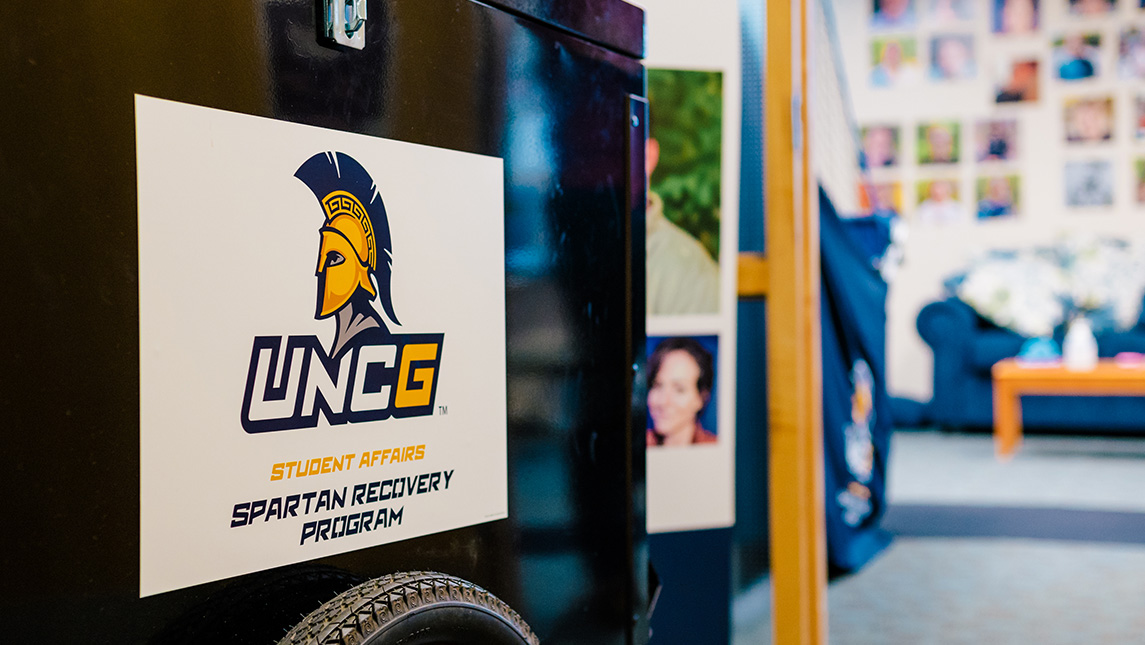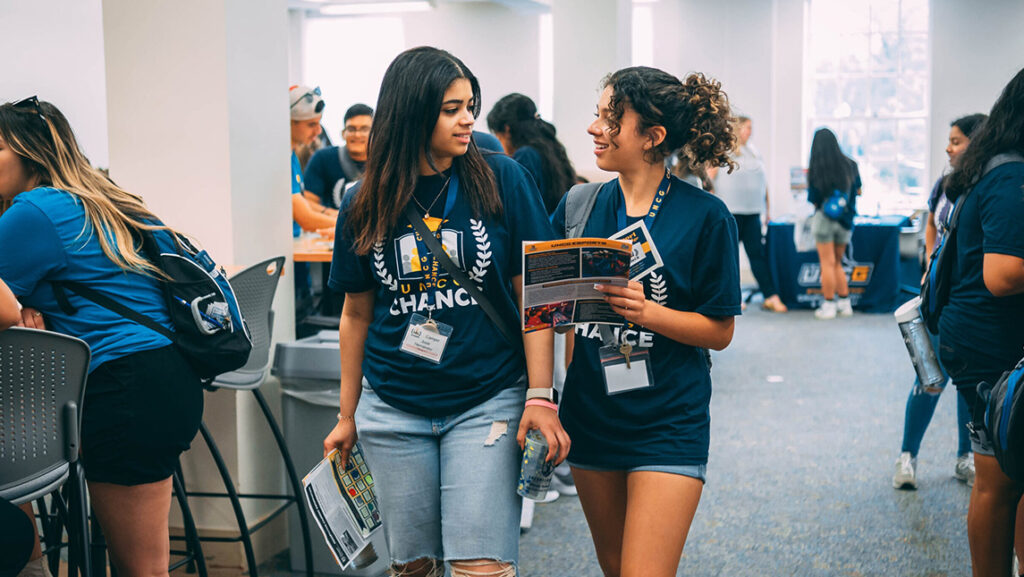Traditional Alcoholic Anonymous (AA) meetings just weren’t the right fit for UNC Greensboro junior Lauren Seamster.
“It was all men over the age of 40,” they say. “I was looking for like-minded people closer to my age.”
It was a recommendation from their therapist that led Seamster to the Spartan Recovery Program (SRP) at UNCG – a program for students in recovery from drugs and alcohol.
“I didn’t even know that colleges had recovery programs, but it’s a lot less clinical,” says Seamster, who is studying biology. “It’s more of a community, like a family.”
CHANGING LIVES
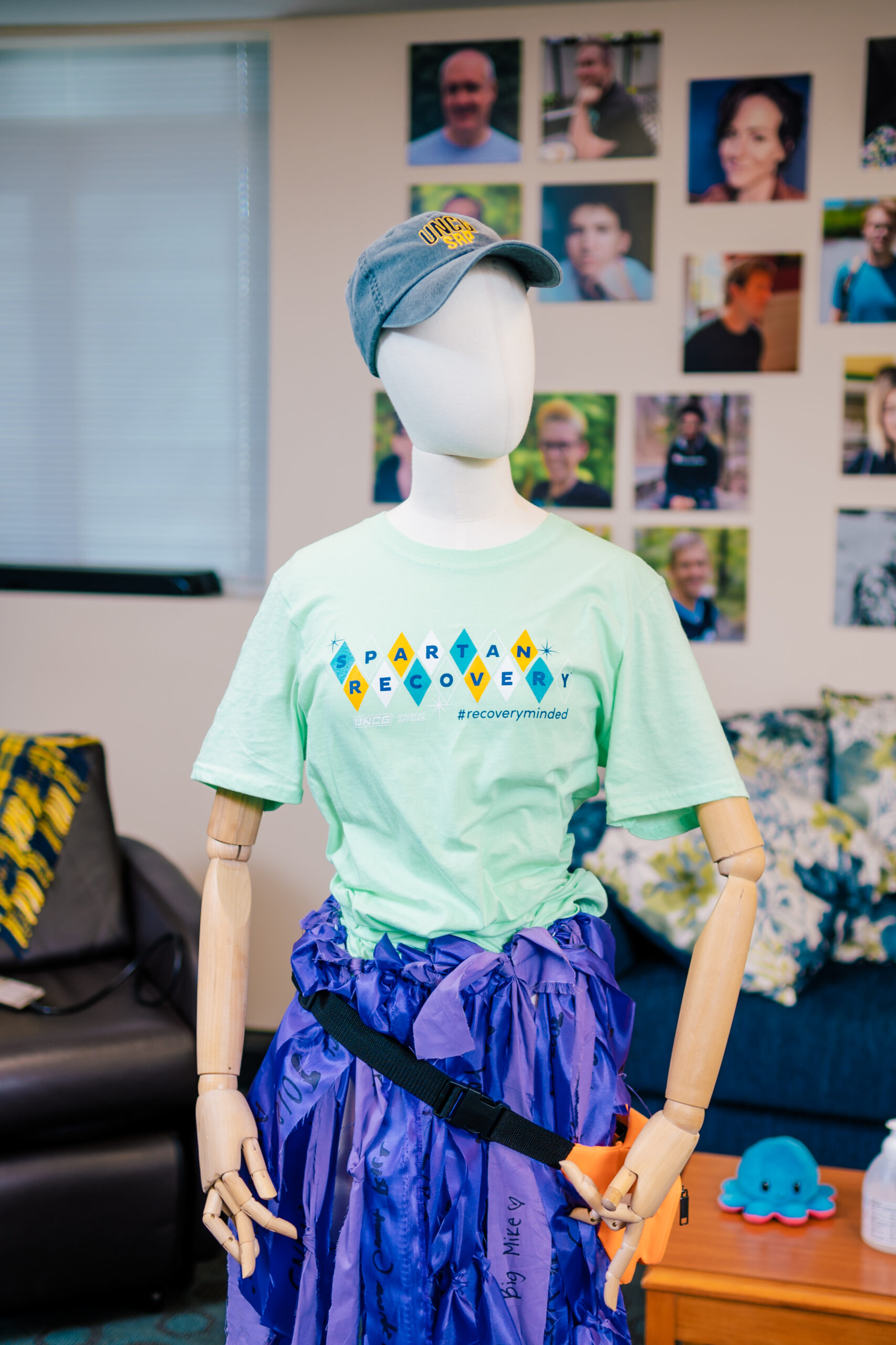
SRP is not a treatment program but offers a variety of support services to help promote the personal, academic, and professional goals of students in recovery. This includes a designated space in the Gove Student Health Center, regular meetings, social activities, and celebrations of recovery.
“We’re actually building a fantastic connection to the university for our students,” says Ches Kennedy, program coordinator. “The lives of these students are changed.”
There are about 23 student recovery programs across universities in North Carolina, but the SRP stands out.
“Spartan Recovery has been a model program in the state of North Carolina since its inception,” says Jarmichael Harris with the Addiction Professionals of North Carolina. “From its Recovery Zone – Recovery Ally Training to its peer conversations with students facing code of conduct challenges, Spartan Recovery has created a safe campus environment to have tough conversations.”
Those peer conversations have helped freshman Jack Watson as he navigated recovery.
“It’s a great support network with like-minded individuals that support your individual needs because they have lived that experience too,” says Watson. “Just having people who care about you and want to see you do well is very beneficial to someone in recovery.”
A WELCOMING PLACE
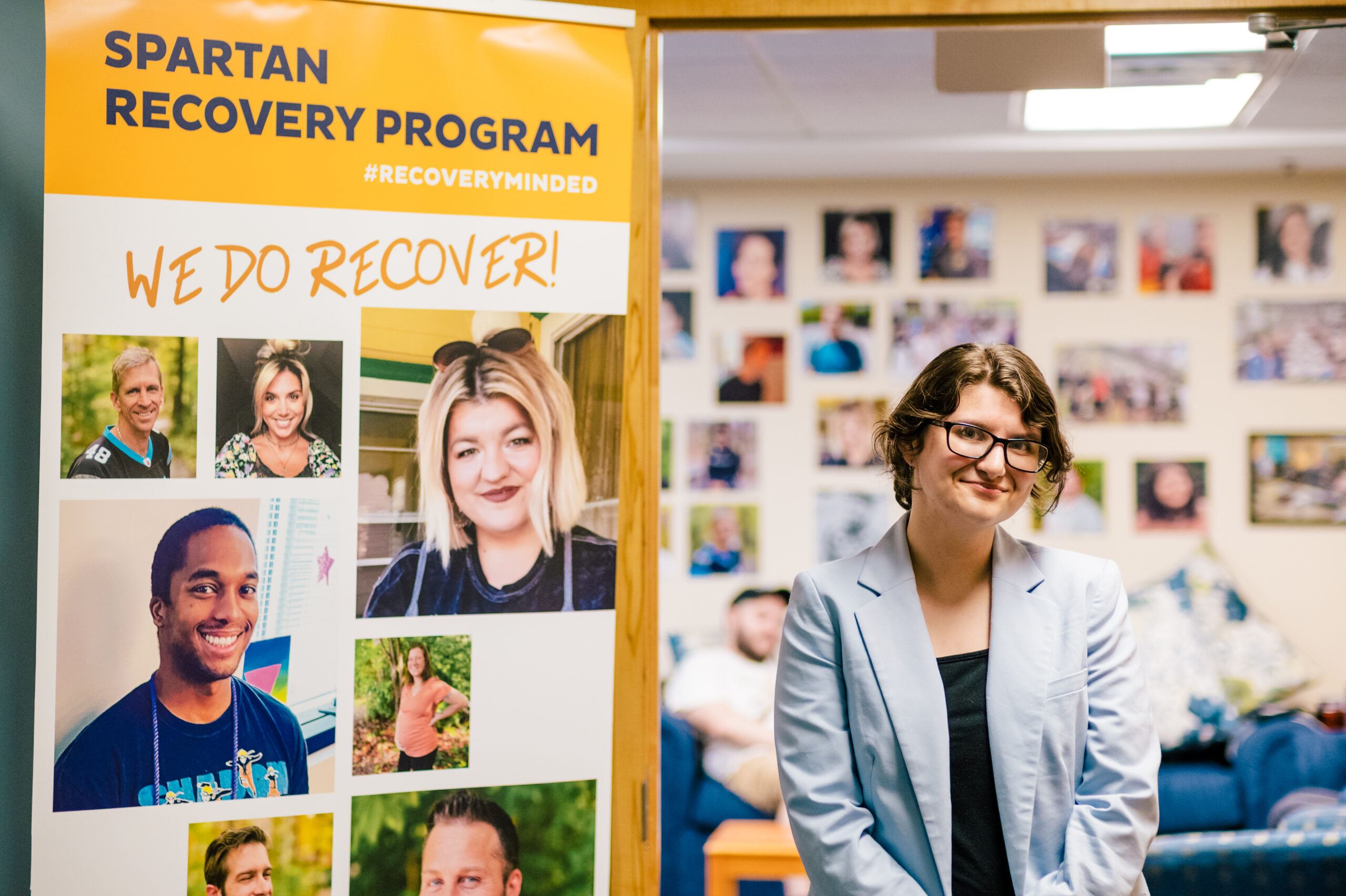
Watson was connected with SRP through a social work class assignment, but it has become much more. Recently, SRP took several students to an AA conference in Myrtle Beach, specifically for the LGBTQ community – an eye-opening experience for Watson.
“It felt like a very welcoming place,” says Watson, who identifies as gay. “And not only that, I’ve never been around so many people in the LGBT community at one time. So it was an introduction to queer spaces.”
Going to the conference was also a big step in Seamster’s recovery journey, and it allowed her to open up for the first time.
“At the end of the conference, I went in front of an audience and said, ‘Hi, my name is Lauren, and I’m a recovering alcoholic.’ I was like, wow, that’s the first time I’ve said that out loud, and everyone clapped,” Seamster says. “It was mind-blowing to me.”
A GRANT FOR GROWTH
About 60 students participate in SRP – Kennedy says the goal is to have their services reach 100 students by the end of the year. But to do that, a different physical space may be needed.
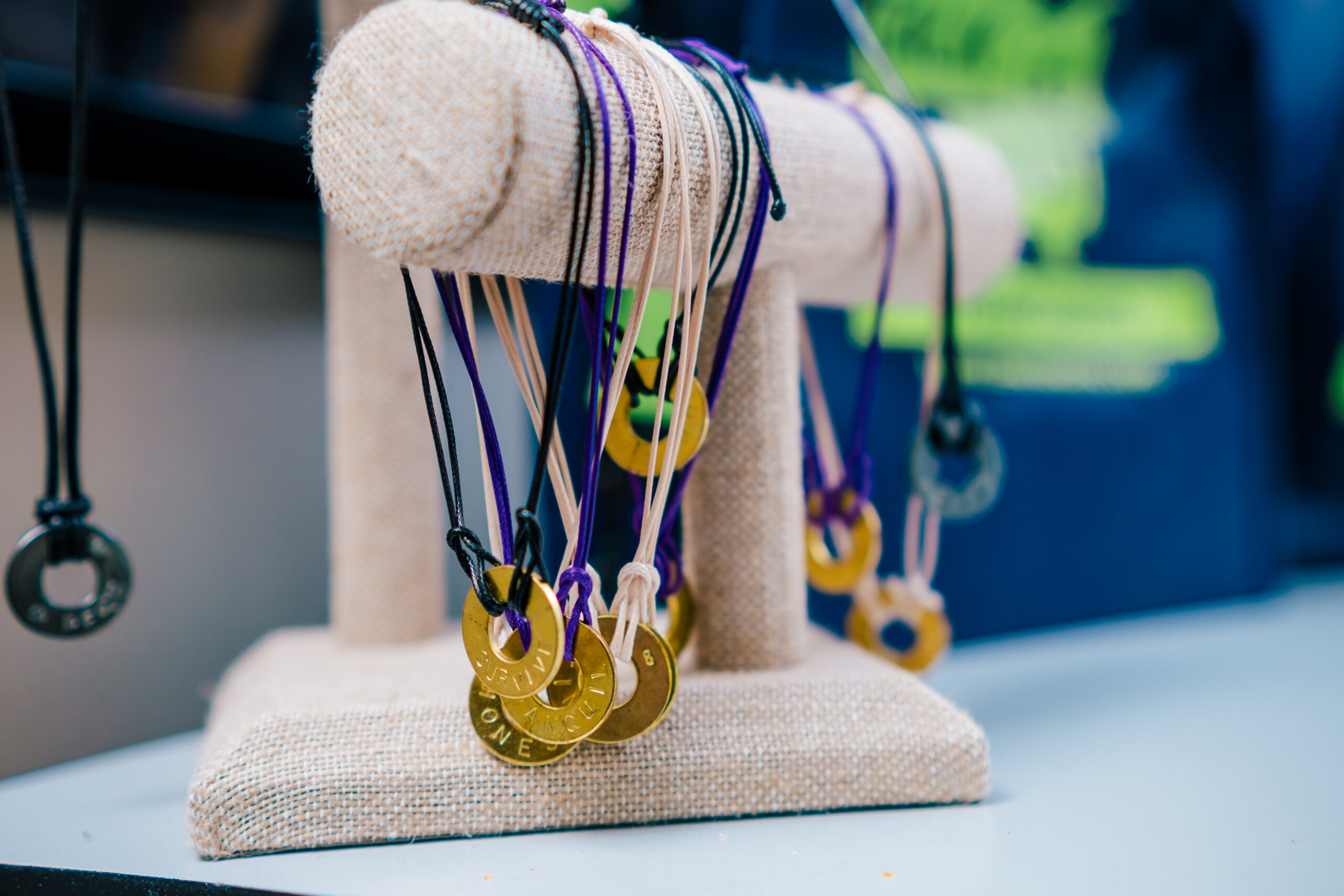
In January, SRP received $394,727 in grant funding from the North Carolina Department of Health and Human Services (NCDHHS) – part of a more than $3.2 million award for schools across the state. Kennedy says they hope to use that money to provide more access to students.
“We are trying to find the perfect space on campus for a program like ours,” says Kennedy. “We’re not trying to hide; we want good exposure. We want to make sure we’re easy to get to. We want to ensure it’s accessible, and students can use this space effectively, the same way we use it now.”
Watson says the current office is one of the most valuable resources the program offers.
“The physical space is great, especially if you’re having intense cravings or something like that,” he says. “You go there and you work on it, and you unpack it.”
A COMMUNITY WHO CARES
While Watson and Seamster discovered the SRP after they started college, students are choosing UNCG because of what SRP has to offer.
“We have a program that supports the university in a big way. Because these students’ lives are changed, they’re able to live different ways and to make excellent grades, better grades than they made when they were using,” says Kennedy. “And they have a community that they love who cares for them.”
Story by Avery Craine Powell, University Communications
Photography by Sean Norona, University Communications
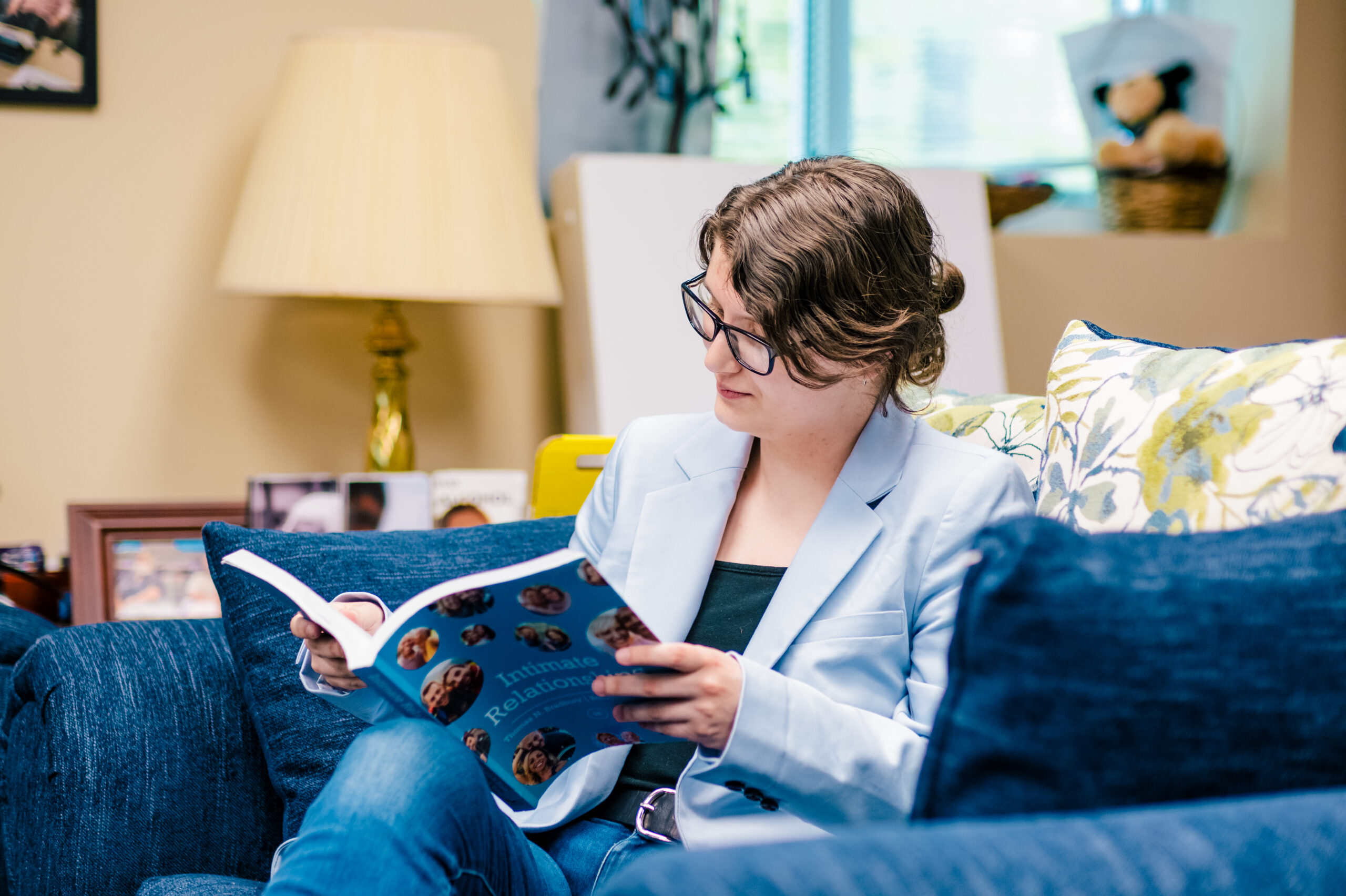
FIND A COMMUNITY OF RECOVERY
